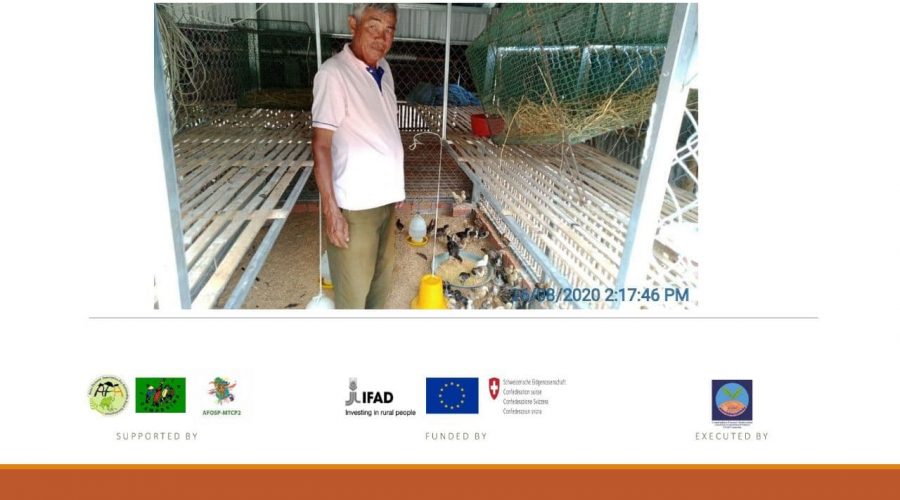
Small scale farmers in rural Cambodia try hard to survive their family in disturbed COVID-19 pandemic!
Though, many small scale farmers are aging now in Cambodia, but they still work actively to survive the family by improving the technical poultry rearing from traditional practice to new backyard chicken practices following technical protocols.
Mr. Ken yaim, a farmer lives in Traok village, Kampong Chamlang commune, Svay Chrum district, Svay Rieng. He is a member of FEDA as cfap’s member in Svay Rieng province. He received a chicken house with 80 chicks on 15 September 2020. Mr. Yaim will change from normal chicken growing practices to new backyard chicken practices with better small scale farm management. In this COVID-19 pandemic, however he faces problems with market engagement and sales regularly to markets.
CFAP in this regard is working hard to promote local produces to markets and conducted various multi stakeholder platform meetings aimed to engage farmers to markets. Contract agreements have made accordingly between farmers and buyers. Due challenges faced in COVID 19 pandemic, therefore we need to empower members’ organizations to play critical roles on markets in the future to ensure that all produces of farmer members would have collected and sold on time after harvests.
CFAP as a member of the national farmers’ organization platform (NFOP) has received intervention on chicken house and chicks from the AFOSP-MTCP2 for small scale farmers to improve their agricultural production and livelihoods, thus to tackle challenges faced during the pandemic to survive their family.